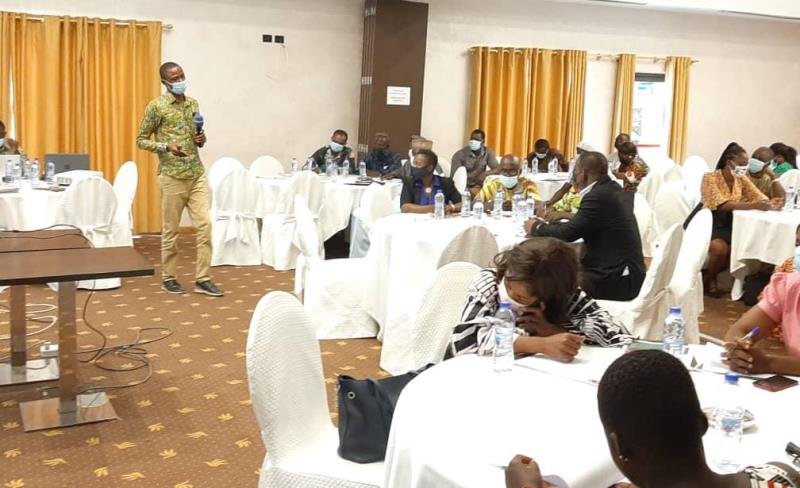Mr Enock Jengre, a Rule of Law Specialist at the Legal Resources Centre (LRC), has called for the enactment of a legislation to mandate lawyers in Ghana to offer free legal services to vulnerable citizens on yearly basis.

He said even though some lawyers offered free legal services to their clients, they were not bound by any legislation to do so, adding that such services were done on voluntary basis.
He acknowledged that the Ghana Bar Association encouraged lawyers to render such services, and indicated that a legislation binding lawyers would be a sure way to ensure that vulnerable and less privileged in society had access to justice services.
“Can we have a legislation that really binds them. We could have at least 10 legal services offered to citizens, especially the vulnerable every year,” the Rule of Law Specialist suggested.
Mr Jengre made the call during a presentation on Access to Justice Sector Services in Bolgatanga, the Upper East Regional capital at a USAID sponsored sensitization workshop on the Ghana Case Tracking System (CTS).
The programme, organised at the instance of the LRC and its partners, the Commonwealth Human Rights Initiative (CHRI) and Crime Check Foundation (CCF), attracted representatives from Civil Society Organisations (CSOs), Heads of Departments, security service personnel among other stakeholders in the Region.
Mr Jengre said legal services were increasingly expensive and some members of the public, especially the vulnerable could not afford services of lawyers, saying “When this enactment of a legislation comes in, it will help the vulnerable in our society.”
Giving the Regional demography of lawyers working for the Legal Aid Commission in Ghana, which stood at 35 as at June 19, 2021 with two out of the number in the Upper East Region, Mr Jengre appealed for more lawyers to the Commission.
This, he said would make access to justice services more easier, and also build confidence in the citizenry in the justice delivery system of the country.
“When justice is inaccessible, the result is injustice. Injustice leads to bitterness, anger, revolt, and ultimately political and social disintegration,” Mr Jengre noted.
He also advocated a community service bill to be passed into law to help decongest prisons across the country, adding that the laws should be reviewed so that punishment for petty offences could be community labour.
“It will be another way of even helping to contribute towards the man power needs and development of the nation. Work such as distilling gutters, or just cleaning around your environment because of a petty offence you commit, will help.
“This will be better than convicting petty offenders into prisons and feeding them with taxpayers’ money, when they can actually serve their communities. It will even serve as a deterrent to offenders,” he said.





